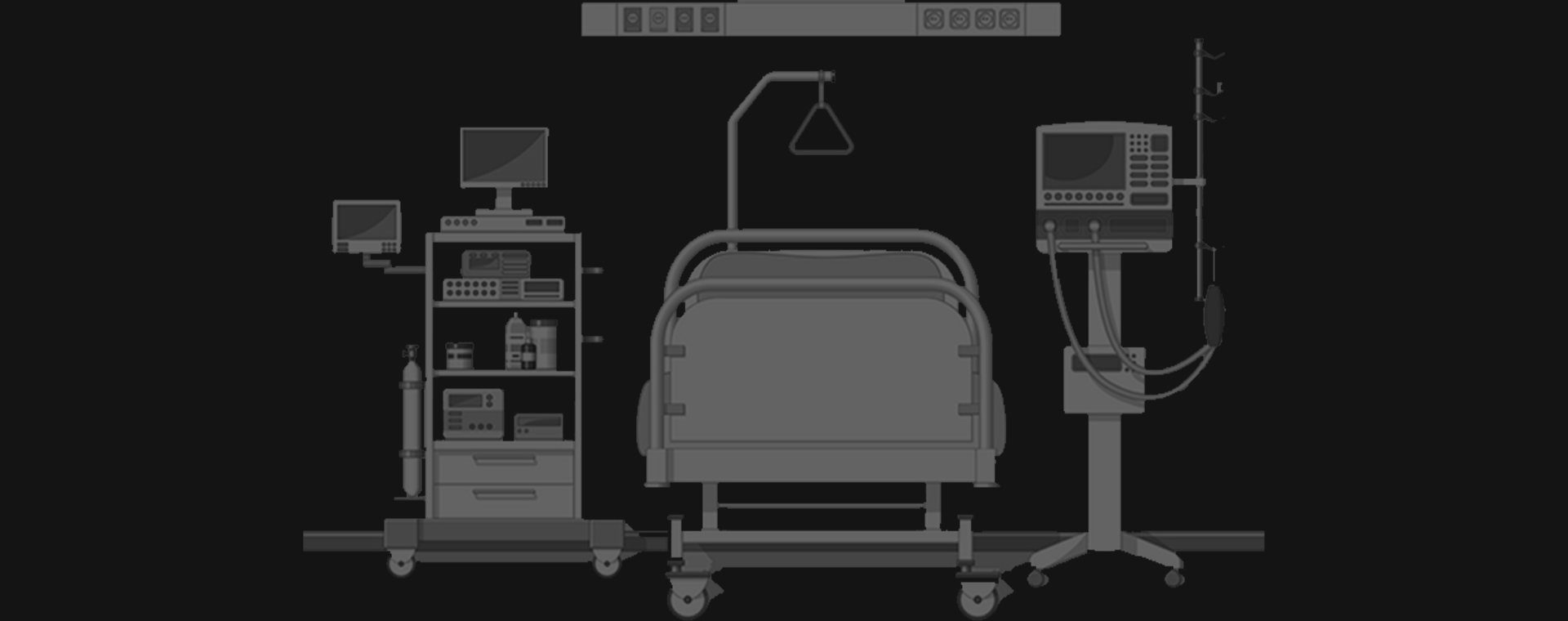
What is Intensive Care?
Intensive care involves comprehensive critical care of patients who need vital support. These patients need constant monitoring and crucial medical attention. It is a medical speciality headed by Intensivists and caters to those with life-threatening injuries and illnesses.
Admittance to a hospital’s intensive care means that the person’s illness is serious and requires the most careful degree of medical monitoring. The Intensive care unit or the ICU in hospitals is typically reserved for patients with lives in immediate danger or imminent organ failure. This includes both established and potential cases. In the most common cases, a vital organ such as the heart or the liver is affected.
Severe afflictions of the lungs, kidneys or the nervous system also necessitate Intensive care. It is suitable for patients needing or expected to require advanced respiratory support. Therefore, the lungs are the most commonly supported organs in ICUs. Unremitting progress in critical care facilities now includes the prevention, diagnosis, and treatment of other organ disorders as well. Critically ill patients with chronic impairment of multiple organs and those needing assistance for an acute reversible failure of another organ need comprehensive care. Additionally, patients requiring the support of multiple organ systems must be admitted to the ICU.
A stay in intensive care can last anywhere between a few days and several months. This period is often punctuated by phases of steady improvement and sudden aggravation. The patients in intensive care are usually very feeble. Therefore, the attending Intensivists and accompanying staff have to be extremely careful during the diagnosis, evaluation, and care.
Intensivists are doctors who are in charge of the ICU. Patients with Cardio-vascular incidents like heart attacks, strokes or in cases of severe infections require the highest level of medical attention. These physicians offer critical care that entails the service of patients, with potentially recoverable conditions. The patient in such cases is conceived to benefit from more thorough observation and invasive treatments. Especially, when compared to the facilities provided by general wards or zones of high dependency.
It is a fact that intensive care involves detailed medical scrutiny and special care. Appropriate and timely action is of the essence. Therefore, it is sensible to have the patient admitted before their condition reaches a point of no return. Early diagnosis and swift referral in particular are extremely important. This reduces the possibility of organ dysfunction, both in terms of the extent and number. It also enhances the chances of recovery. Such a step might also reduce the length of hospital stay further reducing the costs of intensive care. Delaying the referral until the patient’s life is at clear risk jeopardizes their lives and significantly reduces their chances of a full recovery. Once the patient is stable they are transferred to the intensive care unit by qualified intensive care staff using suitable transfer equipment.
As in the case of any course of treatment, considering intensive care for a patient must be based on the notion of potential benefit. Due to the intense and special nature of assistance provided here, IC units in hospitals have limited capacity. Therefore, identifying cases in which the patient stands to benefit from such a high degree of medical care is important. Sometimes, the patient is well enough to recover without any additional assistance. In other cases, there is no hope of recuperating towards an acceptable quality of life. In these situations occupying and blocking an ICU bed is unadvisable.
Having said that, we must understand that age by itself does not determine a patient’s admission to intensive care. However, intensivists accept that increased age is linked to diminishing physiological reserve. It also increases the chances of other coexistent serious diseases.
Although, widely disputed due to their inaccuracy and lacking validation many advanced countries follow illness severity scoring systems to determine ICU admissions. These scores are used to estimate a hospital’s mortality for patients. Acute physiology and chronic health evaluation (APACHE) and simplified acute physiology score (SAPS) are very popular. Yet, these cannot be used to predict which patients will benefit from intensive care.
In India, like most countries, ethical guidelines are factored in while treating critically ill patients. Respecting patient autonomy has been a topic of much debate. Every disease has prognostic guidelines and intensive care can be quite invasive and agonizing in many cases. The intensivist is expected to divulge all information if the patient is capable of autonomous decisions. The option to choose comfort care or palliative care towards the end of their life lies with the patient in most cases.
